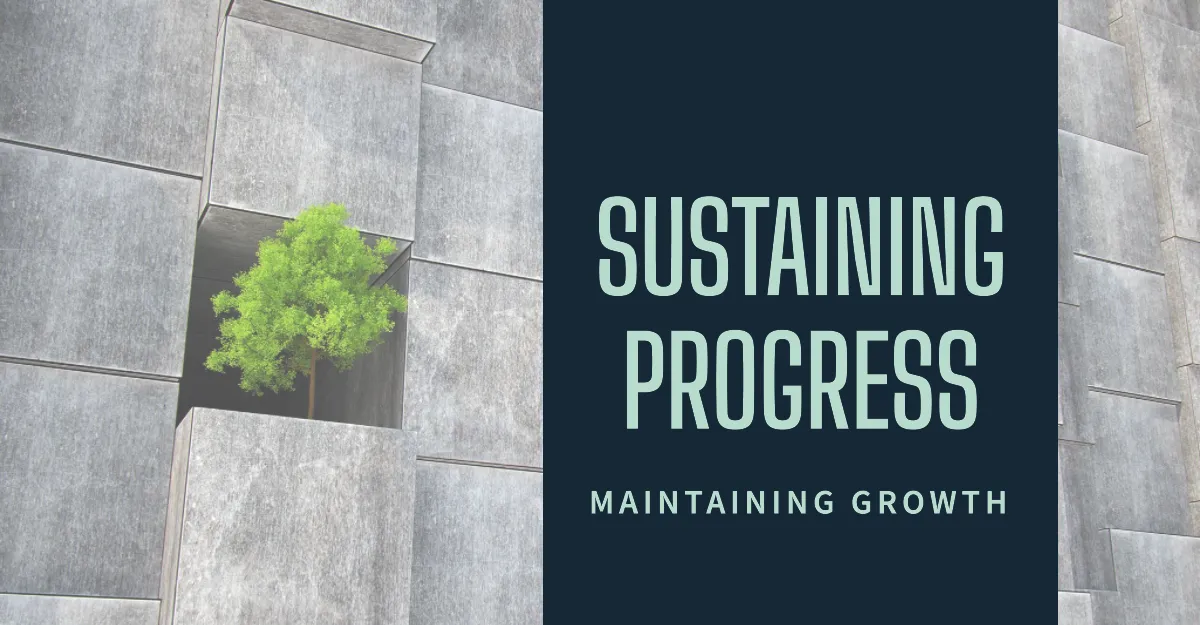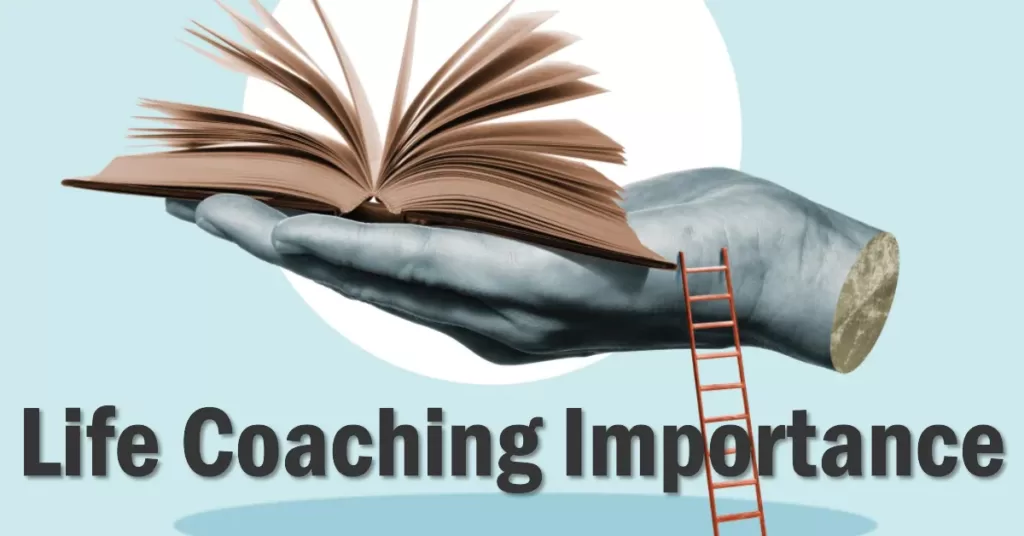Did you know that the majority of people I know feel unsatisfied with their current life situation? Whether it’s feeling unfulfilled in their career, struggling with personal relationships, or just feeling stuck in a rut, many individuals long for greater meaning and purpose in their lives. This is where life coaching comes in – as a powerful tool to help you identify your goals, overcome obstacles, and create an action plan for achieving the life you truly desire.
Life coaching is not just about setting goals and creating plans – it’s also about understanding yourself on a deeper level. By working with a skilled coach, you can gain insights into your values, beliefs, and behaviors that may be holding you back from achieving your full potential. With this newfound self-awareness and guidance from your coach, you can begin to make positive changes in all areas of your life – from personal growth to career success to improved relationships. So if you’re ready to take control of your life and start living it on your own terms, read on to discover why life coaching is so important.
Table of Contents
Key Takeaways
- Life coaching helps individuals identify their goals and create an action plan for achieving the life they desire;
- Life coaching can bring about significant changes in personal and professional development;
- Improving personal and professional relationships involves actively listening, empathizing, and communicating effectively with others;
- Practicing empathy, effective communication skills, and cultivating positive habits can enhance emotional intelligence and wellbeing.
Understanding the Basics of Life Coaching
You’re probably wondering what life coaching is and how it can help you. Well, it’s like having a personal trainer for your mind and emotions, guiding you toward achieving your goals and living the life you want. Life coaches are trained professionals who work with clients to identify their strengths, weaknesses, and areas of improvement.
Through one-on-one sessions, life coaches help individuals develop plans to overcome obstacles that may be preventing them from reaching their full potential. They provide support and accountability as clients work toward achieving their goals. Think of a life coach as someone who helps you navigate through life’s challenges while providing guidance on how to achieve success.
One of the biggest benefits of working with a life coach is gaining clarity on what you truly want in life. Many people go through life without a clear understanding of their purpose or direction. A life coach can help you gain clarity by asking thought-provoking questions that challenge your current beliefs and values.
Overall, understanding the basics of life coaching can bring about significant changes in your personal and professional development. By working with a skilled professional, you’ll have access to resources that enable growth beyond what was previously thought possible. So take the first step toward realizing your dreams by seeking out the services of a qualified life coach today!
Identifying Your Goals and Obstacles
Start by figuring out what you want to achieve and what might be getting in your way. This is a crucial step in the life coaching process, as it helps you to identify your goals and obstacles. To do this, take some time to reflect on where you are currently at in your life and where you would like to be. Write down your goals in a clear and specific manner, so that you can refer back to them throughout the coaching process.
Once you have identified your goals, it’s important to also consider the potential obstacles that could stand in your way. These obstacles may be internal or external factors that could hinder your progress toward achieving your desired outcome. Some examples of internal obstacles may include limiting beliefs or negative self-talk, while external obstacles may include financial constraints or unsupportive relationships.
In the left column of the table, write down all of the goals that you have identified for yourself. In the right column, list all of the potential obstacles that could prevent you from reaching those goals. By doing this exercise, you will gain greater clarity about what needs to happen for you to move forward toward achieving success.
Remember that identifying your goals and obstacles is just one aspect of life coaching – there is much more work involved in creating a plan for action and following through with it. However, by taking this first step toward greater self-awareness and goal setting, you are already on track toward living a more fulfilling life with fewer limitations holding you back.
Developing Strategies and Action Plans

When it comes to achieving your goals, developing strategies and action plans is crucial. By creating a roadmap for success, you’ll have a clear path to follow that will help keep you on track and motivated. It’s also important to identify resources and support systems that can assist you along the way, as well as implement and adjust your strategies as needed. With these key points in mind, you can confidently move forward toward achieving your desired outcome.
Creating a Roadmap for Success
To create a roadmap for success, it’s essential to take the time to identify your goals and break them down into actionable steps that will lead you toward achieving them. Start by visualizing what you want in life and then work backward from there. Think about what actions you need to take in order to achieve those goals. This could include acquiring new skills, building relationships with key people in your industry, or developing a specific habit or routine.
Once you have identified your goals and broken them down into smaller, actionable steps, it’s important to create a plan of action. This could include creating a timeline or schedule for completing each step, identifying potential obstacles that may arise along the way, and coming up with contingency plans for overcoming those obstacles. By taking these steps and creating a clear roadmap for success, you can stay focused on your goals and make progress toward achieving them every day.
Identifying Resources and Support Systems
Identifying resources and support systems is like building a bridge between your goals and the help you need to achieve them, connecting you with people, tools, and knowledge that can propel you forward. It’s important to recognize that no one achieves success alone – we all need others to help us along the way. Whether it’s a mentor who can offer guidance, a supportive community of peers who share similar ambitions, or access to specialized tools or training programs, having the right resources at your disposal can make all the difference in achieving your goals.
One key benefit of working with a life coach is their ability to help you identify these critical resources and support systems. By taking an objective view of your situation and assessing your strengths and weaknesses, they can point you toward the people or tools that will enable you to move closer to success. This might include introducing you to other professionals in your field or recommending books or courses that will enhance your skills. With this kind of guidance, you’ll be able to build a network of supporters around you who are invested in helping you reach your full potential.
Implementing and Adjusting Strategies
By implementing and adjusting strategies, you’ll be able to overcome obstacles and achieve your goals with greater ease, empowering yourself to take control of your future. It’s important to have a plan in place, but it’s equally important to be flexible and willing to make changes as needed. Life coaching can help you identify the most effective strategies for achieving success, as well as provide support and guidance as you navigate any setbacks or challenges that arise.
As you work toward your goals, it’s essential to stay focused on what truly matters. This may mean making difficult choices or sacrifices along the way, but by staying true to your values and priorities, you’ll be better equipped to succeed in the long run. Your life coach can help you develop a personalized action plan that takes into account both short-term and long-term objectives, ensuring that every step you take moves you closer to the life of freedom and fulfillment that you desire.
Improving Personal and Professional Relationships
You can strengthen your personal and professional relationships by actively listening, empathizing, and communicating effectively with those around you. By doing so, you can improve the quality of your interactions with others and experience more fulfilling relationships.
To actively listen, try to focus on what the other person is saying without interrupting or getting distracted. Make eye contact and use body language that shows you are engaged in the conversation. This will help you understand their perspective better and build a deeper connection with them.
Empathy is another crucial aspect of improving relationships. It involves putting yourself in someone else’s shoes and trying to understand how they feel. By doing this, you can develop a greater sense of compassion for others and foster more meaningful connections.
Effective communication is also key to building strong relationships. This means being clear about your thoughts and feelings while also being receptive to feedback from others. By practicing active listening, empathy, and effective communication skills, you can enhance your personal and professional relationships in countless ways.
Enhancing Emotional Intelligence and Wellbeing

Managing stress and anxiety, cultivating positive habits and mindsets, and increasing self-awareness and empathy are all important aspects of enhancing your emotional intelligence and wellbeing. By learning how to manage stressors in your life, you can improve the quality of your relationships and overall happiness. Cultivating positive habits such as gratitude, mindfulness, and self-care can also have a significant impact on your mental health. And by increasing self-awareness and empathy toward others, you can strengthen your communication skills and build stronger connections with those around you.
Managing Stress and Anxiety
Dealing with stress and anxiety can be challenging, but a life coach can help individuals identify triggers and develop coping mechanisms that work best for them. For example, a client of mine who struggled with social anxiety found success in using mindfulness techniques to calm their nerves before attending events. By working with a life coach, you can learn how to manage your stress and anxiety in a healthy way that works for you.
One way a life coach can help you manage stress and anxiety is by teaching you about the power of self-care. This includes taking time for yourself to relax, exercise regularly, eat healthily, and engage in activities that bring you joy. In addition to this, they may also teach you breathing techniques or other relaxation methods to help calm your mind when feeling overwhelmed. With the right tools and support from a life coach, managing stress and anxiety doesn’t have to be an impossible task.
Cultivating Positive Habits and Mindsets
When trying to cultivate positive habits and mindsets, it’s helpful to focus on small changes that can lead to big improvements in your overall wellbeing.
Here are a few tips to help you get started:
- Start your day with gratitude: Take a few moments each morning to think about the things in your life that you’re grateful for. This could be anything from having a roof over your head to having supportive friends and family.
- Practice self-care: Make sure you’re taking care of yourself physically, emotionally, and mentally. This could mean getting enough sleep, eating healthy foods, exercising regularly, or taking time for activities you enjoy.
- Surround yourself with positivity: Seek out people who have a positive outlook on life and spend time with them. You can also surround yourself with uplifting quotes or affirmations.
- Set achievable goals: Break down bigger goals into smaller ones so they feel more manageable. Celebrate each small victory along the way.
Remember, cultivating positive habits and mindsets takes time and effort, but the rewards are worth it. By making these small changes in your daily routine, you’ll start to see improvements in all areas of your life – from relationships to work performance. Keep pushing forward toward creating the best version of yourself!
Increasing Self-Awareness and Empathy
Boost your emotional intelligence by increasing self-awareness and empathy through small daily practices. Self-awareness is the foundation of emotional intelligence because it allows you to recognize your emotions, thoughts, and behaviors without judgment. Once you become aware of your patterns, you can start to understand how they influence your life and relationships. You can then take steps to change them if they no longer serve you.
Empathy is the ability to understand and share the feelings of others. By practicing empathy, you can improve your communication skills, build stronger connections with others, and develop a deeper sense of compassion. One way to increase empathy is by actively listening to others without interrupting or judging them. Another way is by putting yourself in their shoes and imagining how they might be feeling in a particular situation. By making small changes in your daily habits and mindset, you can significantly increase your self-awareness and empathy levels and ultimately lead a more fulfilling life.
Sustaining Progress and Growth

You’ve made progress and reached milestones in your personal and professional life. It’s time to celebrate those achievements and acknowledge the hard work you’ve put in. But, it’s also important to maintain accountability and motivation as you continue on your journey toward growth and success. Life coaching can help you stay on track by providing guidance, support, and encouragement as you navigate new challenges or opportunities for learning and development. So, keep pushing forward with a positive mindset and the tools necessary to sustain progress.
Celebrating Your Achievements and Milestones
Celebrating your accomplishments and milestones is akin to placing the icing on the cake; it enriches your journey of personal growth with further joy and fulfillment. The key responsibility of a life coach is to assist you in identifying your objectives, devising tactics to reach those objectives, and maintaining momentum. However, equally significant is the celebration of your successes throughout this journey.
Here are four reasons why recognizing achievements and milestones is crucial for life coaching clients:
- It boosts confidence: Celebrating your victories allows you to see your inherent strengths and undeniable abilities.
- It promotes motivation: By drawing attention to the steps you’ve taken toward a goal, you’ll feel even more inspired to persist.
- It reinforces commitment: Acknowledging milestones serves as a reminder of why you embarked on this journey, spurring you to stay the course.
- It inspires growth: The process of celebrating your achievements can spark profound self-reflection and a burgeoning eagerness for personal development.
Maintaining Accountability and Motivation
Maintaining accountability and motivation is key to helping you stay on track toward your goals and overcome obstacles along the way. As a coach, one of my primary roles is to help you maintain focus and dedication toward achieving what you desire in life. Whether it’s making significant changes in your personal or professional life, having someone who keeps you accountable can make all the difference.
Accountability involves setting clear expectations and deadlines for yourself while working toward your goal. It means taking ownership of your actions, being honest when things don’t go as planned, and being willing to adjust course when needed. Motivation comes from within but having someone who encourages and supports you along the way can give that extra push needed to keep going. By maintaining accountability and motivation, we work together to ensure that you are continuously moving forward toward becoming the best version of yourself.
Continuing Learning and Development
Now that we’ve talked about how life coaching can help you maintain accountability and motivation, let’s move on to another important aspect of coaching – continuing learning and development.
As you work with a coach, they can help you identify areas of growth and provide guidance on how to improve in those areas.
Here are five ways in which continuing learning and development through life coaching can benefit you:
- You’ll gain new perspectives: A coach can help you see situations from different angles, broadening your perspective and helping you find new solutions.
- You’ll learn new skills: Coaches often have specialized knowledge or expertise in certain areas, which means they can teach you valuable skills that will serve you well throughout your life.
- You’ll stay accountable: As you continue to work with a coach, they will hold you accountable for implementing what you’ve learned and putting it into practice.
- You’ll increase your self-awareness: Through the process of working with a coach, you’ll gain a deeper understanding of yourself – your strengths, weaknesses, values, and goals.
- You’ll achieve greater success: By continually learning and developing yourself under the guidance of a coach, you’re setting yourself up for even greater success in all areas of your life.




